JournalismPakistan.com | Published April 12, 2019
Join our WhatsApp channel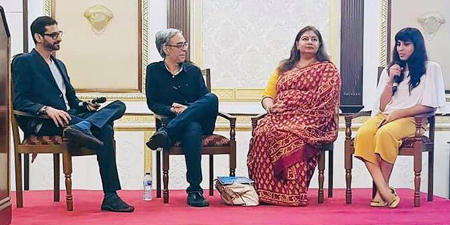
KARACHI - The annual Pakistan Internet Landscape report that highlights trends in local cyberspace related to critical topics including internet access, censorship, privacy, and cybercrime among others was launched here on Friday.
Jahanzaib Haque has authored the report published by human rights and advocacy organization Bytes For All.
The launch event included a panel discussion by experts - Jahanzaib Haque, senior journalist and TV show host Zarrar Khuhro, co-founder Women's Advancement Hub Aisha Sarwari, and human rights defender Marvi Sirmed.
Some other topics covered in the report include hacking, child porn, blasphemy, fake news, e-commerce, and fin-tech/branchless banking.
The report notes that outside of the positive outlook in e-commerce and fin-tech/branchless banking, online developments across 2018 have seen some downward trends, with the state apparatus and its attempts to control the internet proving to be most troubling.
Bytes For All Chairperson of the Board Marvi Sirmed said: “Since the last edition of this report was published, Pakistan has faced far greater control over free expression, increased censorship, secrecy of public policy decision-making, and violation of fundamental freedoms of citizens.
“This report not only maps the trends in existing usage of the internet by all these stakeholders but also dilates upon the possibilities of further innovation to not only bolster freedom of information and expression but also to provide insight as to how the state could improve governance and service delivery to people. This also carries valuable information for tech start-ups and digital innovation projects undertaken by social entrepreneurs.”
12 key findings of the 2018 report:
1) Overall internet penetration continues to increase, bolstered mainly by mobile phones with internet connections; a total of 62 million 3G/4G subscribers now form 29.55% of penetration.
2) The fundamental challenge of the urban-rural, socio-economic divide in terms of internet access remains in place.
3) Cellular network suspensions have continued in the name of security.
4) The state has made some effort to improve governance through the internet with particular strides by law enforcement agencies.
5) The possible addition of clauses specific to blasphemy in the already controversial Prevention of Electronic Crimes Act could result in serious harm both online and offline through misuse and abuse of the laws.
6) Some strides were made to curb child pornography, with awareness raised and an increasing number of arrests carried out. The extent to which this crime exists across the country is worrying, however.
7) There were several large-scale hacks, including ride-hailing app Careem and Bank Islami, that exposed grave threats to data and privacy in Pakistan. The general elections also saw citizen data being shared widely for political purposes.
8) The state and other actors have continued surveillance of activists and journalists, resulting in intimidation and harassment.
9) Traditional media and associated journalists have found themselves to be the targets of intimidation, harassment, violence, and even monetary losses, resulting in self-censorship across all media, including online.
10) The elections saw all political parties compete fiercely to win votes through the online space. It also resulted in a large volume of hate speech and fake news targeting political opponents.
11) Due in large part to social media and specifically WhatsApp and Facebook, fake news is an ever-growing challenge in the country.
12) Perhaps the biggest, and arguably most positive developments were encouraging growth in the fin-tech/online banking and e-commerce front.
“Access to the Internet, Dangerous Speech, Cyber Armies and Data Protection will continue to be the major challenges for Pakistan’s Internet Landscape in the coming year,” Shahzad Ahmad, Country Director of Bytes For All, Pakistan said.
In summary, Haque shared that “despite taking a few steps forward, at the macro-level, the country remains without a cohesive, progressive and all-encompassing approach to the internet and the implications of living in a digitized world.”
Photo courtesy: Jahanzaib Haque (Facebook)

June 11, 2025: Pakistan celebrated a narrow win over Bangladesh, but beneath the jubilation lies a deeper crisis—from sidelined veterans to a collapsing domestic structure—signaling an urgent need for cricket reform.
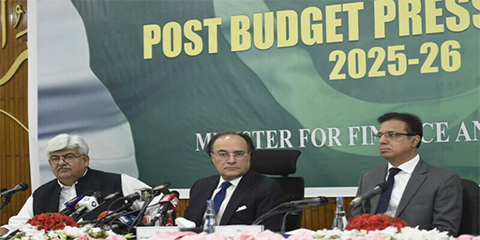
June 11, 2025: Journalists walked out of the post-budget press conference in Islamabad to protest the absence of a technical briefing and the government's dismissive behavior, calling it unacceptable and intolerable.
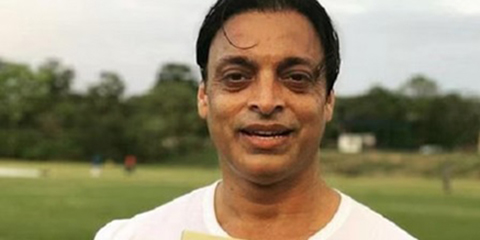
May 31, 2025: Dr. Nauman Niaz has issued a defamation notice to Shoaib Akhtar over derogatory remarks made during a recent broadcast, reigniting a longstanding media feud between the two prominent figures in Pakistan.

May 30, 2025: The Human Rights Commission of Pakistan has demanded the full repeal of PECA, citing its vague language, coercive powers, and threats to free speech and digital rights in Pakistan.
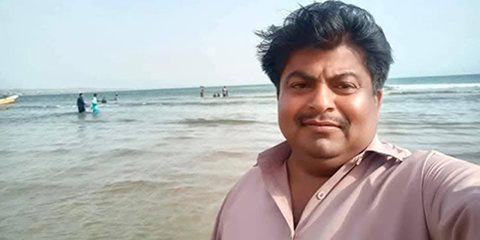
May 30, 2025: The Pakistan Federal Union of Journalists (PFUJ) has condemned the murder of journalist Syed Mohammed Shah in Jacobabad, calling for urgent justice and improved safety for media professionals in Sindh.

May 26, 2025: In Rawalpindi, police allegedly side with Jang Group to block 66 reinstated employees from resuming work despite court orders, drawing sharp criticism from unions and press freedom advocates.

May 25, 2025: PFUJ condemns the Jang Group's decision to dismiss over 80 employees in Rawalpindi, calling it an 'economic massacre.' The union warns of nationwide protests if workers are not reinstated.
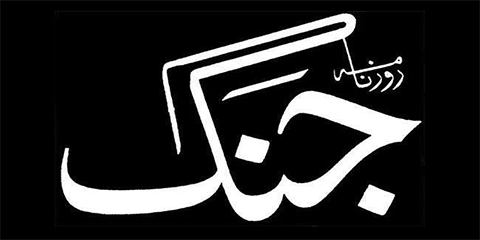
May 25, 2025: Daily Jang Rawalpindi has terminated over 80 employees, including female staff, despite multiple court rulings in their favor—raising concerns over labor rights violations and misuse of authority in Pakistani media.
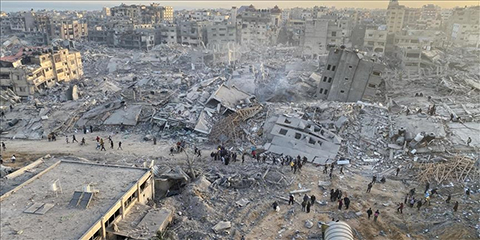
May 19, 2025 PJS reports 219 Palestinian journalists killed in Israeli attacks since October 7, with 30 women among the victims. Over 430 were injured and 685 family members were killed. Read more on the systematic targeting of media in Gaza.

May 15, 2025 Discover the legacy of Samiullah Khan, Pakistan’s legendary "Flying Horse," whose breathtaking speed and artistry redefined hockey. From Olympic glory to World Cup triumphs, his story is one of myth, movement, and magic.
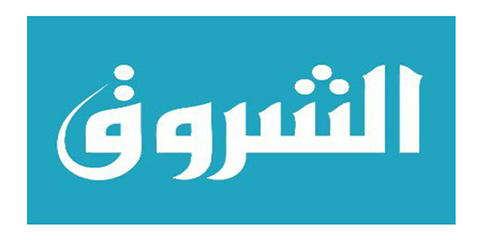
May 04, 2025 Algerian authorities suspend Echorouk News TV for 10 days after it used a racist slur against African migrants. ANIRA demands an apology, calling it a violation of human dignity.

May 04, 2025 NCHR and MMfD launch a journalism fellowship to train reporters on digital rights & gender inclusion in Pakistan. Supported by UNESCO, this initiative aims to bridge the gender digital divide. Apply by May 15, 2025!
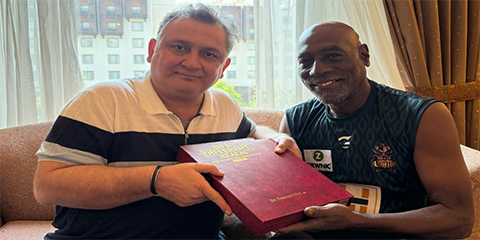
April 23, 2025 Discover Dr. Nauman Niaz’s In A Different Realm: Story of Quadruple & Triple Centuries 1876–2025, a profound exploration of cricket's most monumental innings, blending historical analysis with poetic narrative.